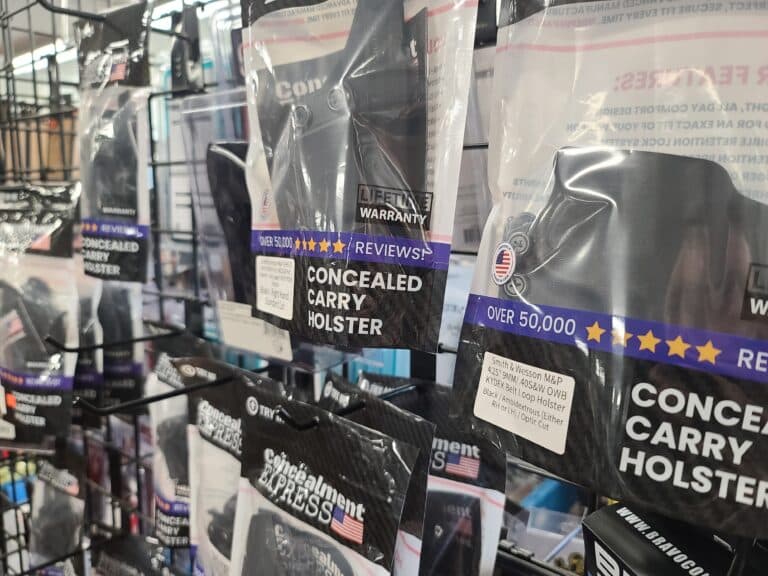Pennsylvania Attorney General Dave Sunday (R.) has restored a concealed carry reciprocity agreement with Virginia, allowing gun owners with valid permits to carry in both states.
On Wednesday, AG Sunday announced the move. He said his office had conducted a review that found there was no conflict between the two states’ gun-carry laws. He concluded Virginia permit holders should be able to lawfully carry in Pennsylvania without having to obtain a local carry permit.
“Shortly after taking office, I asked my staff to review opportunities to maximize reciprocity agreements with willing states, and ensure all existing and future agreements protect and respect standing law and constitutional rights,” Sunday said in a statement. “Our research of law in both states revealed nothing conflicting that would disallow permit holders to carry in both states.”
Virginia already allows Pennsylvanians with concealed carry permits to carry in their state since it recognizes all other states’ permits by law.
The move means Pennsylvania now honors gun-carry permits from 30 other states, and both Virginia and Pennsylvania will now recognize each other’s permits once again. It comes seven years after Pennsylvania Governor Josh Shapiro (D.), who was serving as the state’s Attorney General at the time, revoked the 2013 concealed carry reciprocity agreement between the two.
Shapiro terminated the agreement with Virginia after claiming Virginia’s background check system failed to meet Pennsylvania’s standards. His office argued there was a “material difference” in how the two states processed background checks for their respective permits, and the difference justified the elimination of reciprocity.
“This is necessary because the background check Virginia conducts when issuing firearms licenses to its residents does not meet Pennsylvania’s legal requirements,” Amy M. Elliott, then Pennsylvania deputy attorney general, wrote to Virginia State Police at the time. “Virginia requires only that the Court issuing a license consult with local law enforcement and receive a report from its State Police. This report may be limited to a simple criminal history search, see Va. Code § 18.2- 308.04, and the local agency has complete discretion over the scope of the background check.”
AG Sunday came to a different conclusion. His office said that nothing in Virginia’s gun-carry laws conflicts with Pennsylvania’s regulations.
“Review of law indicated there is no Virginia statute or provision incompatible with Pennsylvania law,’ Sunday’s office wrote in a statement. “The [Memorandum of Understanding] allows a license holder from Virginia to carry a firearm concealed on their person, or in a vehicle, in Pennsylvania, and a Pennsylvania license holder to do the same in Virginia.”
Gun-rights advocates, who had pressed the new Republican AG to change the policy since he assumed office earlier this year, praised the decision.
“This is great news for the 718,000 CHP holders in the Commonwealth of Virginia,” Val Finnell, Pennsylvania Director of Gun Owners of America, said in a statement. “No longer will Virginians be treated as second-class citizens when they travel to Pennsylvania. They will be able to exercise their constitutional right to keep and bear arms once more.”
Pennsylvania’s decision to recognize Virginia permits also comes after increased scrutiny on the state’s non-resident permitting process. Last month, Attorney General Pam Bondi (R.) sent a letter to Sunday and Pennsylvania Sheriffs Association president Sean Kilkenny (D.) complaining that many sheriffs don’t issue gun-carry permits to non-residents. She warned the practice could draw legal challenges from the Department of Justice.
“This practice is unlawful under Pennsylvania law,” Bondi wrote last month. “It also raises serious concerns under the Second Amendment, which guarantees the right to bear arms in public, as well as the Privileges and Immunities Clause, which prohibits discriminating against out-of-state citizens by denying them the exercise of fundamental rights.”
The new reciprocity agreement is only applicable to handguns. It requires permit holders to be at least 21 years of age, carry photo identification, and display the concealed carry permit when asked by law enforcement. They are also ineligible if the government has previously revoked their concealed carry permit.






